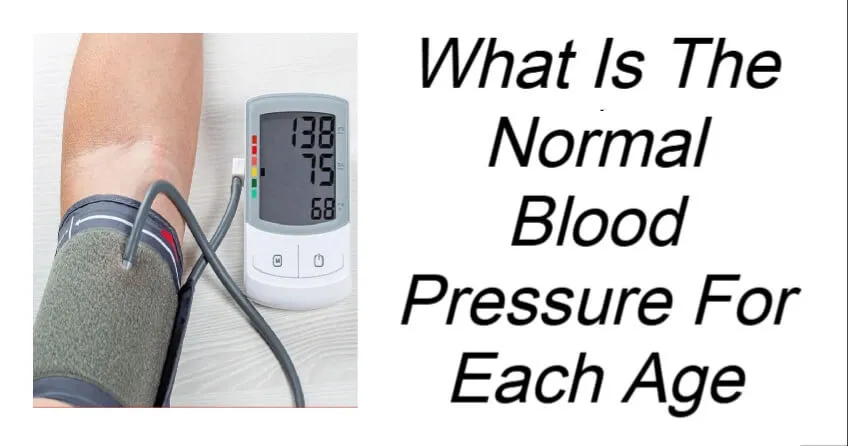What Is The Normal Blood Pressure For Each Age
Blood pressure isn’t just a number your doctor checks at your annual visit — it’s a vital window into your heart’s health. And as you age, that number becomes more important than ever.
Understanding how blood pressure evolves over time, and what’s considered healthy for your age group, can help you take proactive steps to protect yourself from serious conditions like heart disease, stroke, and kidney issues.
Why Blood Pressure Matters
Blood pressure is the force of blood pushing against the walls of your arteries as your heart pumps it through your body. It’s one of the most telling indicators of your cardiovascular health — and a key player in identifying risks before they become crises.
While the ideal blood pressure is often cited as around 120/80 mm Hg, what’s considered “normal” can shift slightly based on age, health history, and other individual factors.
For most people, the following is a guide.
| Bl00d pressure | Systolic (top number) mm Hg | Diastolic (bottom number) mm Hg |
|---|---|---|
| Low | Less than 90 | Less than 60 |
| Optimal | Less than 120 | Less than 80 |
| Normal | 120–129 | 80–84 |
| Normal to high | 130–139 | 85–89 |
| High | Greater than 140 | Greater than 90 |
Around 120/80 mm Hg is often considered a typical blood pressure reading.
Below is the average bl00d pressure for children and teens:
| Age | Systolic (top number) mm Hg | Diastolic (bottom number) mm Hg |
|---|---|---|
| Newborns up to 1 month | 60–90 | 20–60 |
| Infants | 87–105 | 53–66 |
| Toddlers | 95–105 | 53–66 |
| Preschoolers | 95–110 | 56–70 |
| School-aged children | 97–112 | 57–71 |
| Adolescents | 112–128 | 66–80 |
In adulthood, the average bl00d pressures by age and gender are:
| Age | Women | Men |
|---|---|---|
| 18–39 years | 110/68 mm Hg | 119/70 mm Hg |
| 40–59 years | 122/74 mm Hg | 124/77 mm Hg |
| 60+ years | 139/68 mm Hg | 133/69 mm Hg |
How Aging Affects Blood Pressure
As you get older, the chances of developing high blood pressure (hypertension) increase significantly. Here’s why:
- Stiffer arteries: With age, your arteries lose some of their elasticity. This makes it harder for blood to flow smoothly, which raises your pressure.
- Plaque buildup: Over time, fatty deposits can accumulate in blood vessels, further restricting flow and increasing pressure.
- Hormonal and kidney changes: Aging can alter how the body regulates fluid and salt, both of which impact blood pressure.
These changes make high blood pressure one of the leading risk factors for heart attacks, strokes, and vascular dementia in older adults.
How to Maintain Healthy Blood Pressure at Any Age
Whether you’re 25 or 75, the following lifestyle habits can help you maintain or lower your blood pressure — naturally.
✅ Maintain a Healthy Weight
Being overweight increases your risk of high blood pressure. Even losing a few pounds can make a significant difference.
🥗 Eat a Heart-Healthy Diet
Prioritize:
- Vegetables and fruits
- Whole grains
- Low-fat dairy
- Lean proteins
Avoid: - Excess salt
- Saturated fats
- Trans fats
- Added sugars
The DASH diet (Dietary Approaches to Stop Hypertension) is highly recommended for managing blood pressure.
🚶♀️ Stay Active
Aim for at least 150 minutes of moderate-intensity exercise (like walking, swimming, or cycling) each week. Daily movement helps keep your heart strong and your vessels flexible.
🚭 Quit Smoking
Smoking damages blood vessels and raises your blood pressure. Quitting can reduce your risk of heart disease almost immediately.
🍷 Limit Alcohol
Heavy or regular alcohol use raises blood pressure over time. Cutting back to moderate drinking — one drink a day for women, two for men — can make a difference.
Final Thoughts
High blood pressure might be more common as we age, but it doesn’t have to be inevitable. By understanding how your body changes over time — and making small, consistent lifestyle shifts — you can protect your heart and stay healthy well into your golden years.
If you haven’t checked your blood pressure recently, let this be your reminder to do it today.
You’ve just read, What Is The Normal Blood Pressure For Each Age. Why not read Manager Had To Hire A New Employee.

